The Day We Were Evacuated From Jordan
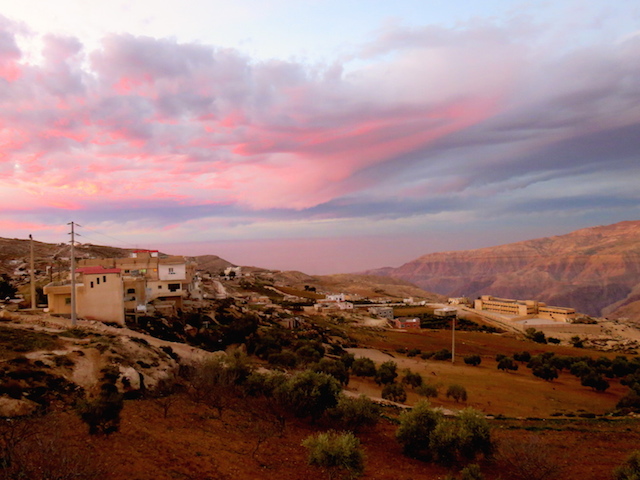
We filed into the room and were greeted by the familiar faces of Peace Corps Jordan staff. We dropped off our belongings and began talking and laughing despite the feeling of uneasiness hovering over us. The director seemed composed as he asked us all to find our seats. Then he gave us the news we were all expecting, but dreading nonetheless, “Guys, there’s no easy way to say this. We’re going home.”
My heart sank. Some of the volunteers began to cry. Others began to ask questions. Why? What does this mean? What’s next? Others sat silently. My thoughts immediately turned to my village. How am I going to tell all of those people I made promises to that I am leaving in three days? How am I going to explain this to my 11-year old host brother, Yahya? Or my 4-year old host sister, Estabraq? My 15-year old host sister, Rahma? How was I going to explain this to my students?
To the families who took me in as their own daughter? To the two women who were like mothers to me, always making sure I had dinner and that I was warm when the electricity went out? The thought of having to look all of those people in the eye and tell them that I was leaving, that all of the promises I made them were nothing short of lies, weighed down on me during the bus ride home. I was sad that I was leaving and angry that I did not have a choice or say in the matter.
The thought of having to look all of those people in the eye and tell them that I was leaving, that all of the promises I made them were nothing short of lies, weighed down on me during the bus ride home.
Being evacuated is an emotional process. For us, it happened unexpectedly and gave us very little time to process the news, say goodbye, and come to terms with what we did or did not accomplish during our service. We were lucky in that respect though—most evacuees do not get time to say goodbye or have those important, cathartic moments with those closest to them.
Later that same evening I mustered up enough courage to confront my host family. I trudged up the stairs and exhaled deeply before knocking. Through the textured glass, I deciphered the figure of Estabraq bounding towards the door, exclaiming excitedly, “It’s Toby! It’s Toby! It’s Toby!” I could vaguely hear the Call to Prayer on the television in the background. My host mom opened the door and welcomed me with a warm smile.
The Day We Were Evacuated From Jordan
Estabraq instantly began to playfully scold me for not visiting the night before and then began belting her favorite English song from preschool, “Sky is blue! Blue, blue, blue! Sun is yellow! Yellow, yellow, yellow!” Usually, I would clap vigorously after she sang and would insist on an encore, but tonight, her song and enthusiasm just twisted the knife in my heart.
My host mom instantly sensed my distress and led me into the other room where her three eldest daughters were studying for their engineering exams. I told them about the meeting and that in three days all Peace Corps volunteers in Jordan were to be evacuated. They looked shocked and asked why. I had no concrete reason to provide them, but I explained that there was concern that something might happen because of the security in Jordan’s neighboring countries.
“But Jordan is safe. You’re safe here.” They replied.
Estabraq instantly began to playfully scold me for not visiting the night before and then began belting her favorite English song from preschool, “Sky is blue! Blue, blue, blue! Sun is yellow! Yellow, yellow, yellow!”
“I know,” I responded. “But it’s out of my hands.” After I regained composure, I faced my youngest host siblings and tried to explain the situation as simply as possible. Rahma said, “Okay,” and left, but I could hear her crying in the adjacent room. Estabraq was confused and speechless, pacing the room trying to comprehend what I had said and why everyone in her family looked visibly upset. Yahya silently left the room. After, we all sat together, absorbing the moment and processing the news. A cloud of emotion engulfed us with despair and helplessness.
I remember looking around at the faces of my host family. I remember their teary eyes, their slightly flushed cheeks and noses, and their frowns. At that moment, I began questioning everything. Did I make the right decision coming to Jordan? Was my presence here beneficial? Did I make any difference in the lives of those I encountered? Did I leave any lasting impact on my community? Was my time spent here worth it? I remember feeling overwhelmed with guilt and thinking, for a second, that it was a mistake coming to Jordan and getting to know this community.
The Day We Were Evacuated From Jordan
After all, all I seemed to have accomplished was letting them down. I was so engrossed in these negative, unproductive thoughts that I did not notice that Yahya had re-entered the room. The next thing I knew, he was hugging me and placing in my hand his favorite, translucent blue marble with a metallic sheen and a tiny chip missing. “A gift,” he said, “don’t forget me.”
His generous gift made all of those negative thoughts disappear. Yes, I was leaving before planned, but my time spent in my village was not in vain. It was not pointless. It was important. The gift symbolized the time we had together, the hours we spent sitting on the floor that winter in front of the heater playing marbles.
It symbolized the relationship we had managed to build in just two months; me, a 23-year-old American woman and him, an 11-year-old Jordanian boy, despite cultural differences, religious differences, and, at times, a language barrier. His gift gave me hope; maybe I left as much of an impact on them as they left on me. Maybe I widened their perspective, as much as they widened mine. Maybe I taught them, as they taught me.
[His gift] symbolized the relationship we had managed to build in just two months; me, a 23-year-old American woman and him, an 11-year-old Jordanian boy, despite cultural differences, religious differences, and, at times, a language barrier.
Peace Corps offers its volunteers an unparalleled opportunity—to go abroad to a country they oftentimes know nothing about, to learn a new language, to meet people from different cultures and really get to know them. Volunteers live with the people of their community, and their communities absorb them, treating them as their own. We mourn together, celebrate together, and together participate in the quotidian chores of life.
Because of that translucent blue marble, I realized the value of human relationships and the impact they can have on individuals. The relationships I built with my students, families, fellow volunteers, and staff members instilled in me a revived perspective into just how similar we all are.
Throughout the world, brothers chase sisters with insects, and sisters squeal out of surprise and repulsion. People cry when they cut onions. Moms scold children for playing soccer in the house. Children refuse to eat vegetables. Adults go to work and children go to school. New relationships are formed, old ones are sometimes broken. People get married, children are born, people die, and life goes on.
The Day We Were Evacuated From Jordan
Although my fellow volunteers and myself had different experiences and have different stories to tell, we all made connections with the people of our communities.
We all have those few people we will never forget. We built relationships with each other that were solidified by our concentrated service; we stood together in solidarity during the tough times and together, we celebrated the victories. We all connected with the staff, who made themselves completely available to us, making clear that ensuring our safety, physical health, and mental well being would always remain their first priority.
We all left our communities with plans unfinished, projects undone, and promises unfulfilled, but we all left having built meaningful relationships, and in the grand scheme of things, that time spent together will be remembered and cherished.
During training, one of the staff members stood up and said to all of us, “If after your service you leave here having built one relationship, you can consider your service successful.” Using this as a measure, every single one of us left Jordan having a successful service. We all left our communities with plans unfinished, projects undone, and promises unfulfilled, but we all left having built meaningful relationships, and in the grand scheme of things, that time spent together will be remembered and cherished.
The decision to evacuate us must not have been an easy one to make, but it was probably the right one given the current circumstances in the region. I truly hope that one day Peace Corps returns to Jordan. As for my fellow evacuees and myself, many of us have accepted posts in other countries. Although I will not be able to continue my service in Jordan, I will be among those who have decided to continue in the Kyrgyz Republic.
I am looking forward to the new adventure, learning about a new culture and region, new languages, and continuing the Peace Corps tradition of building new bonds, all the while keeping in mind that blue marble, the one that mimics the chip in my heart lost somewhere in a village atop a mountain overlooking The Dead Sea, in the midst of a joyful and vibrant community full of hope and life.
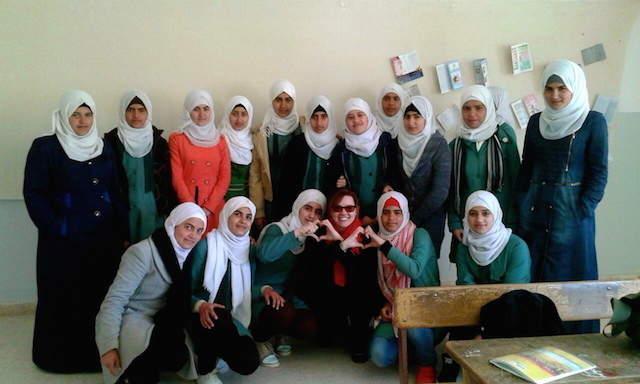
Have you traveled to Jordan? How was your trip? Email us at editor@pinkpangea.com for information about sharing your experience and advice with the Pink Pangea community. We can’t wait to hear from you.
The Day We Were Evacuated From Jordan photos by Toby Cox.

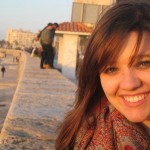
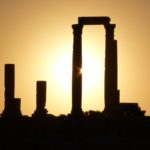
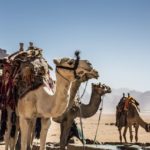

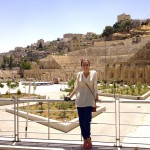
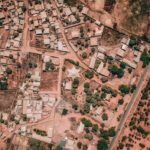
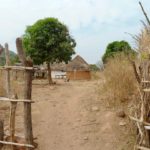
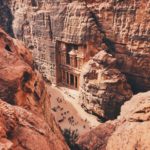
Toby,
Wow! That was a powerful article; I appreciate your service and heart. I am speaking to teenagers next week on the importance of our influence in the world. Could I please read your story to them? Tell your mom, dad, and Tabby we said hello and we miss them as neighbors.
Austin
Toby, this is so beautifully written, it makes my memoir writing about Jordan pale in comparison! I happen to currently work for a Unitarian Universalist (UU) church, and among the many beauties of this essay, I find that it has many of the qualities of a great UU sermon about what binds us together as human beings.
I hope that you will speak about your Jordan experience, too, when you return from the Kyrgyz Republic and take up the Third Goal, and if there’s a UU congregation in your area that has a lay pulpit (i.e. invites non-clergy to speak from the pulpit on Sunday mornings), I think you would be welcomed there as a speaker!
I would be happy to help you find one if you were interested. Just leave me a note on my blog (which is exerpts of my memoir of Jordan) at desertmirror.blogspot.com